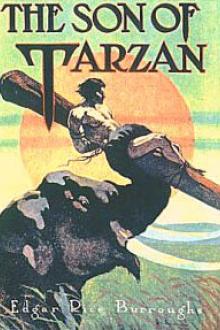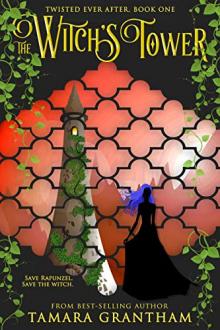Genre Fantasy. Page - 20

nothing, I might yet come in contact with something; but my search was vain. Instinctively then, as to the only living thing near me, I turned to the raven, which stood a little way off, regarding me with an expression at once respectful and quizzical. Then the absurdity of seeking counsel from such a one struck me, and I turned again, overwhelmed with bewilderment, not unmingled with fear. Had I wandered into a region where both the material and psychical relations of our world had ceased to hold? Might a man at any moment step beyond the realm of order, and become the sport of the lawless? Yet I saw the raven, felt the ground under my feet, and heard a sound as of wind in the lowly plants around me!
"How DID I get here?" I said--apparently aloud, for the question was immediately answered.
"You came through the door," replied an odd, rather harsh voice.
I looked behind, then all about me, but saw no human shape. The terror that madness might be at hand laid hold upon me: must I hencefort

down,
"I think that too!"
And then they all cried out, making a great noise, "Yes, yes. Let us give him the finest present a White Man ever had!"
Now they began to wonder and ask one another what would be the best thing to give him. And one said, "Fifty bags of cocoanuts!" And another--"A hundred bunches of bananas!-- At least he shall not have to buy his fruit in the Land Where You Pay to Eat!"
But Chee-Chee told them that all these things would be too heavy to carry so far and would go bad before half was eaten.
"If you want to please him," he said, "give him an animal. You may be sure he will be kind to it. Give him some rare animal they have not got in the menageries."
And the monkeys asked him, "What are MENAGERIES?"
Then Chee-Chee explained to them that menageries were places in the Land of the White Men, where animals were put in cages for people to come and look at. And the monkeys were very shocked and said to one another,
"These Men are like thoughtless young ones--stupid and easily amused. Sh! It is a prison he means."
So then they asked Chee-Chee what rare animal it could be that they should give the Doctor--one the Wh

ization meant to Tarzan of the Apes a curtailment of freedom in all its aspects--freedom of action, freedom of thought, freedom of love, freedom of hate. Clothes he abhorred--uncomfortable, hideous, confining things that reminded him somehow of bonds securing him to the life he had seen the poor creatures of London and Paris living. Clothes were the emblems of that hypocrisy for which civilization stood--a pretense that the wearers were ashamed of what the clothes covered, of the human form made in the semblance of God. Tarzan knew how silly and pathetic the lower orders of animals appeared in the clothing of civilization, for he had seen several poor creatures thus appareled in various traveling shows in Europe, and he knew, too, how silly and pathetic man appears in them since the only men he had seen in the first twenty years of his life had been, like himself, naked savages. The ape-man had a keen admiration for a well-muscled, well-proportioned body, whether lion, or antelope, or man, and it had ever bee

napping sound from below, and David's foot was released. He unstuck the snag from his shirt, pushed his way out of the thicket, and sat down weakly on the grass. Whew! At least the bird was not going to harm him. It seemed to be quite a kindly creature, really. He had just frightened it and made it angry by bursting out of the bushes so suddenly.
He heard a flailing in the thicket, followed by the bird's anxious voice: "Hello! Are you still there?"
"Yes. What--?"
There were more sounds of struggle. "This is rather awkward. I--the fact is, I am afraid, that I am stuck myself. Could you--"
"Yes, of course," said David. He smiled to himself, a little shakily, and re-entered the thicket. When he had disentangled the bird, the two of them sat down on the grass and looked at each other. They hesitated, not quite sure how to begin.
"I trust," said the bird at last, "that you are not of a scientific turn of mind?"
"I don't know," said David. "I'm interested in things, if that

t had not been there before the darkness came, she suspected that it had to do with the lamp. She kneeled therefore, and searched with her hands, and bringing two large pieces together, recognized the shape of the lamp. Therefore it flashed upon her that the lamp was dead, that this brokenness was the death of which she had read without understanding, that the darkness had killed the lamp. What then could Falca have meant when she spoke of the lamp going out? There was the lamp -- dead indeed, and so changed that she would never have taken it for a lamp, but for the shape! No, it was not the lamp anymore now it was dead, for all that made it a lamp was gone, namely, the bright shining of it. Then it must be the shine, the light, that had gone out! That must be what Falca meant -- and it must be somewhere in the other place in the wall. She started afresh after it, and groped her way to the curtain.
Now, she had never in her life tried to get out, and did not know how; but instinctively she began to mov

habitants of Opar will never know that I have been there again and despoiled them of another portion of the treasure, the very existence of which they are as ignorant of as they would be of its value."
The finality in his tone seemed to assure Lady Greystoke that further argument was futile, and so she abandoned the subject.
Werper remained, listening, for a short time, and then, confident that he had overheard all that was necessary and fearing discovery, returned to the veranda, where he smoked numerous cigarets in rapid succession before retiring.
The following morning at breakfast, Werper announced his intention of making an early departure, and asked Tarzan's permission to hunt big game in the Waziri country on his way out--permission which Lord Greystoke readily granted.
The Belgian consumed two days in completing his preparations, but finally got away with his safari, accompanied by a single Waziri guide whom Lord Greystoke had loaned him. The party made but a single short m

o immediately fell to talking again and finally, with his head tipped back, sniffed the air in the direction of the tree above them and then suddenly pointing toward the carcass of Bara, the deer, he touched his stomach in a sign language which even the densest might interpret. With a wave of his hand Tarzan invited his guest to partake of the remains of his savage repast, and the other, leaping nimbly as a little monkey to the lower branches of the tree, made his way quickly to the flesh, assisted always by his long, strong sinuous tail.
The pithecanthropus ate in silence, cutting small strips from the deer's loin with his keen knife. From his crotch in the tree Tarzan watched his companion, noting the preponderance of human attributes which were doubtless accentuated by the paradoxical thumbs, great toes, and tail.
He wondered if this creature was representative of some strange race or if, what seemed more likely, but an atavism. Either supposition would have seemed preposterous enough did he

took himself very seriously, and life, and his work, which latter was the tutoring of the young son of a British nobleman. He felt that his charge was not making the progress that his parents had a right to expect, and he was now conscientiously explaining this fact to the boy's mother.
"It's not that he isn't bright," he was saying; "if that were true I should have hopes of succeeding, for then I might bring to bear all my energies in overcoming his obtuseness; but the trouble is that he is exceptionally intelligent, and learns so quickly that I can find no fault in the matter of the preparation of his lessons. What concerns me, however, is that fact that he evidently takes no interest whatever in the subjects we are studying. He merely accomplishes each lesson as a task to be rid of as quickly as possible and I am sure that no lesson ever again enters his mind until the hours of study and recitation once more arrive. His sole interests seem to be feats of physical prowess and the reading of everythi

